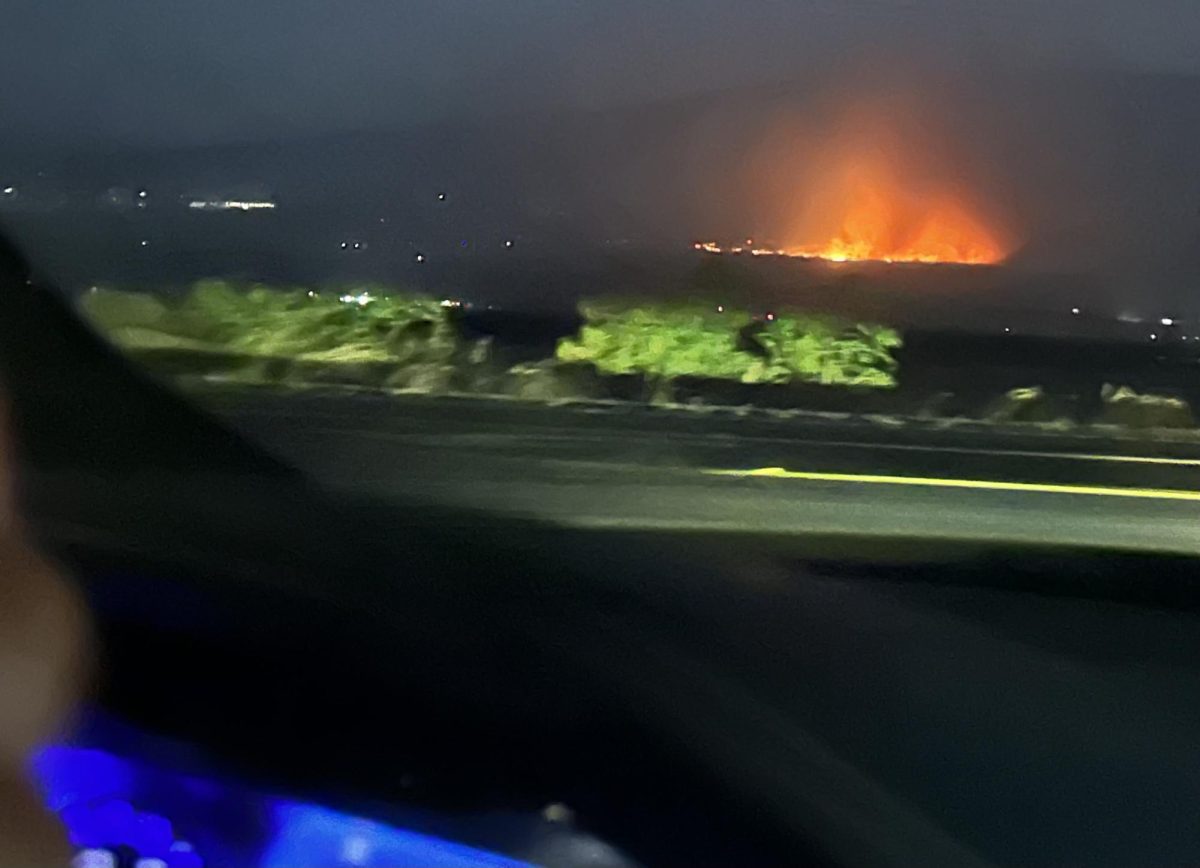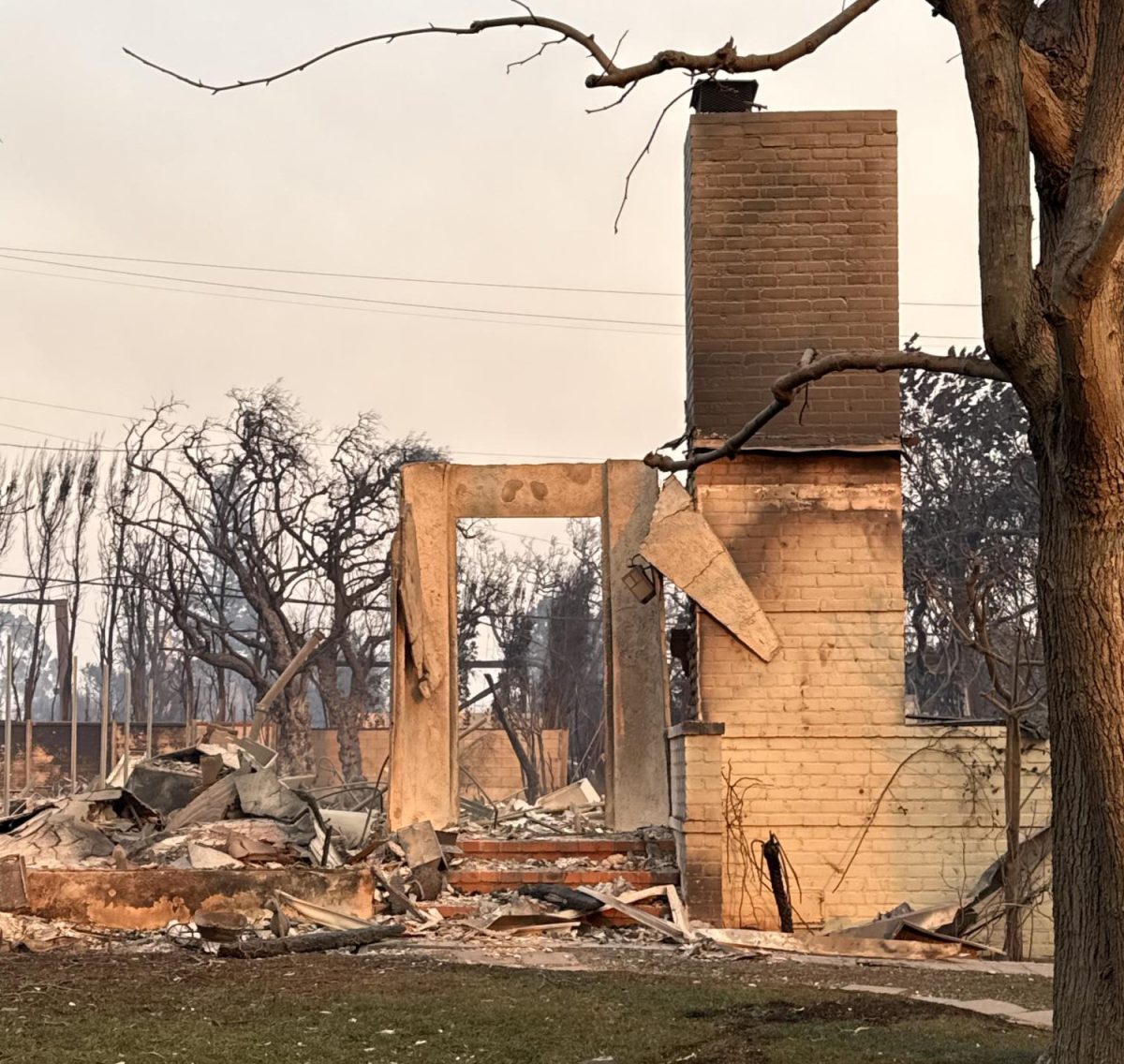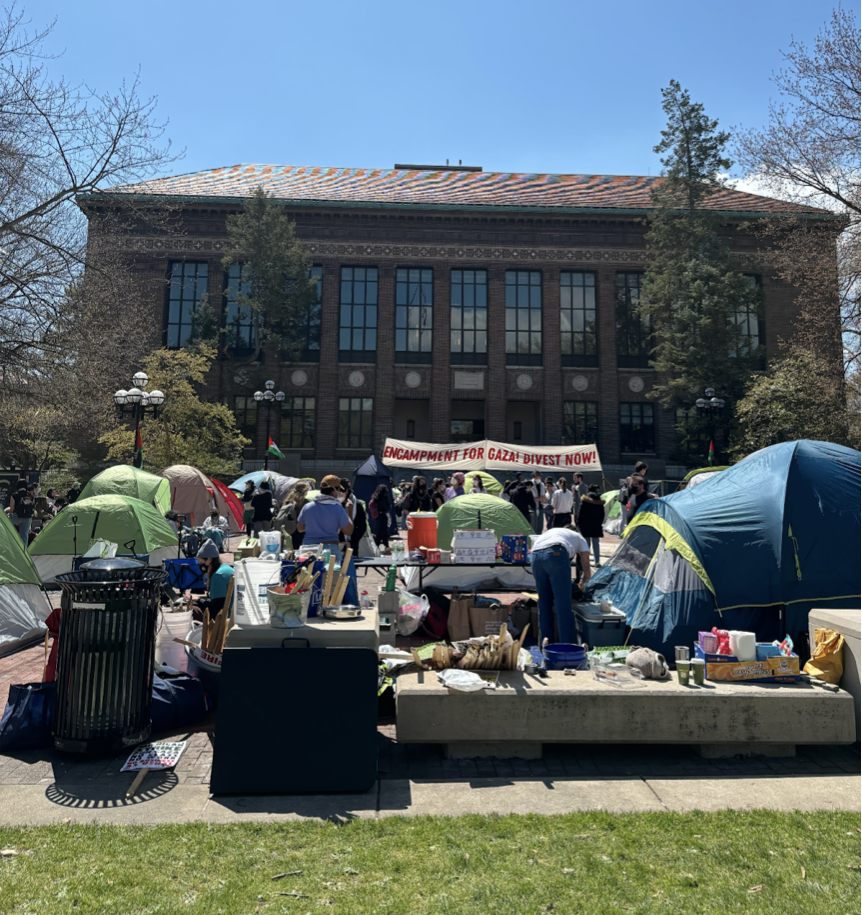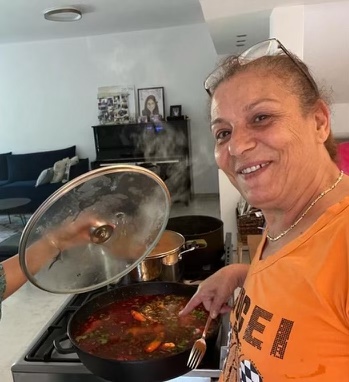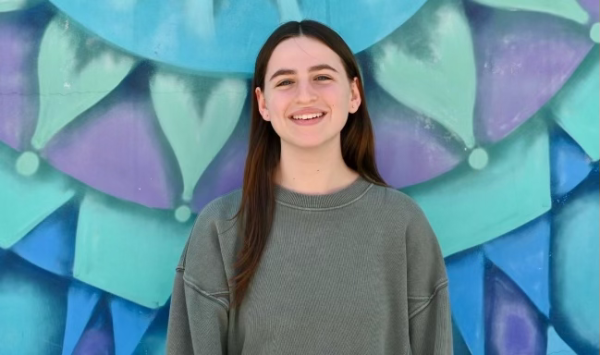Though the power was out that day in Lahaina where they were vacationing, Heather and Joel Jacobson had planned a day trip traversing a famous scenic road. So they decided on the morning of Aug. 8 to drive to the other side of the island of Maui.
The couple, who have four children including two at Shalhevet, spent the day hiking in East Maui, expecting the drive back to their Airbnb in late afternoon to be four hours long, typical for a drive across the island. But around two hours into the drive, the highway became packed with cars, and the travel time steadily increased on their GPS. Eventually, traffic was going so slowly that they pulled over to walk around.
When they got back on the road later that evening, they saw flames lighting up the horizon.
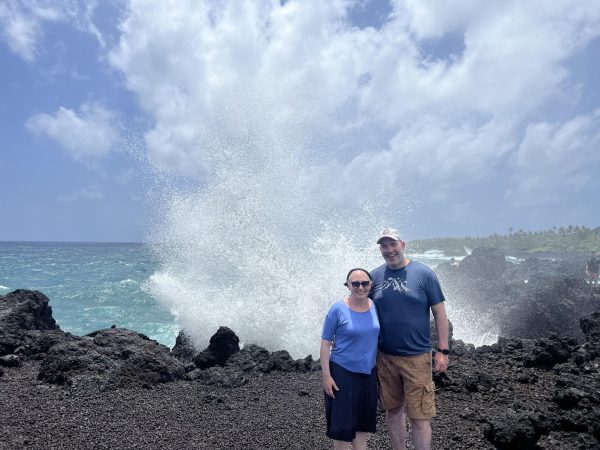
A catastrophic wildfire that Tuesday night destroyed most of Lahaina – a historic town on the west side of Maui that used to be the capital of the Kingdom of Hawaii. According to The New York Times, the fire’s official death toll has recently dropped from 115 to 98, but may increase or decrease again in the future if more victims are identified or found to have survived. The Maui Police Department reported that eight people are still missing.
According to multiple media reports, it was the deadliest fire in the United States in the last century. The exact cause of the fire is not clear, but strong winds combined with dry grasslands and severe drought conditions allowed it to easily spread. Fallen power lines due to the strong winds might also have contributed.
“We were lucky we had gone on that day trip because we were never really close to the fires,” said Ms. Jacobson, mother of Shalhevet sophomore Sam and freshman Ben Jacobson. “We were never in any actual danger.”
They were not the only lucky ones. According to the Chabad rabbi of Maui, Rabbi Mendy Krasnjansky, he and his community are aware of no Jews who died or are missing from the fire, either tourists or residents.
“From whoever we know, no one who we know – we checked in and we didn’t hear of any Jews that had died,” Rabbi Krasnjansky said in an interview with the Boiling Point. “It’s possible, because there’s people we don’t know and still going through the remains [but] no one that we’re aware of, thank God. Again, not to mitigate the greater tragedy of all the lives that were lost.”
Rabbi Krasnjansky does know of one Jewish person who was injured, and around 60 whose homes, businesses and most of what they owned went up in flames.
He and his family were visiting relatives on the East Coast when the fire broke out, but when they found out they took the first plane they could back to Maui to help in the aftermath.
“Every summer there’s kind of forest fires, so they’re always troubling, but not too alarming,” Rabbi Krasnjansky said. “But then reports started coming in, and then we woke up Wednesday morning and saw what happened to Lahaina, and our phones were just ringing off the hook.”
He said most of the initial work of Chabad was fielding calls from relatives of people on the island and arranging places for residents and tourists to stay, he said. The group set up a fund to assist with rent, housing and other essentials and, according to Rabbi Krasnjansky, connected with Jews from the island that were previously not associated with the Chabad.
Chabad of Maui – which is located south of Kihei, a town on Maui’s southwest coast and south of Lahaina – was not damaged by the fire. Smaller fires came close to Rabbi Krasnjansky’s home, he said, but since it was in an area where evacuees were sheltering, there were volunteers close by ready to grab Chabad’s Sefer Torah if that had been needed.
In the month after the fire, the thousands of Maui residents whose homes and businesses were incinerated were staying in hotels and other shelters across the island, with their shelter, food and essentials funded by federal and state agencies as well as volunteer organizations, according to The New York Times.
A press release from the Federal Emergency Management Agency (FEMA) Oct. 12 said government agencies allowed residents and business owners to reenter areas designated as safe. People were able to return to their properties and look for any of their belongings that might have been spared. The U.S. Army Corps of Engineers worked with local state officials to clear dangerous debris from private properties, and most recently, the Environmental Protection Agency and local organizations also helped remove toxic materials from damaged neighborhoods.
The island’s Jewish community is facing the same challenges in the aftermath of the fire as the rest of the Maui population, according to Rabbi Krasnjansky.
“Everyone’s in the same boat,” the rabbi said. “Some people have left the island, some people are staying with friends, some people have found rentals. It’s kind of varied.”
As of Oct. 15, three Lahaina public schools that were not completely destroyed by the fires were set to reopen that week. Previously, makeshift campuses had been set up for displaced kids, or schools across the island took in students.
The island reopened for tourists on Oct. 8, after a state order by Hawaii Gov. Josh Green discouraging visitors.
But the Jacobsons – including Mr. Jacobson, who is also Shalhevet’s board president as of this year – do not plan on returning.
After spending the night of Tuesday, Aug. 8 in their car, they reached out to Rabbi Krasnjansky when Mr. Jacobson’s brother told them that there was a Chabad they could receive assistance from.
But after the fire was out, the Jacobsons did not know how they were going to leave the island and where they were going to stay that night.
“Probably like 5:30 am Wednesday morning, we drove up sort of back towards the airport area,” Mr. Jacobson said. “We thought we were going to eventually make our way back to the Airbnb and didn’t end up making our way back.”
The Jacobsons had with them only what they had left in their Airbnb the day before. All their clothing, technology and belongings, including Mr. Jacobson’s wedding ring, were saved by Rabbi Krasnjansky. The Chabad rabbi drove to the Jacobson’s Airbnb in the week after the fire was contained, collected all that was left behind and shipped it to Mr. and Ms. Jacobson in LA.
But on Wednesday afternoon, the Jacobsons did not know whether they would be able to get their belongings back. So they – along with the hundreds of people in the same situation – purchased whatever food and clothing they could at a Target after being stranded on the side of a road for a night.
“We couldn’t do anything, couldn’t get out,” said Mr. Jacobson. “I had been looking all day for hotels, Airbnbs, and there was literally nothing available on the entire island.”
Mr. and Ms. Jacobson stayed in Rabbi Krasnjansky’s guest room the night of Wednesday, Aug. 9, and left the island the next day.
“It was clear we weren’t going to get any of our stuff back,” said Mr. Jacobson. “So we went to the airport and ended up making our way out of Maui.”
They were able to leave on Thursday morning, Aug. 10. The airport had been packed since the night before with people trying to leave, and many spent the night there.
“We were fortunate, we already had a flight booked,” said Mr. Jacobson. “They were trying to, at that point, evacuate all the visitors from the island as quickly as possible, so airlines had replaced the regular planes with big international planes, and so for us it was relatively easy.”
The Jacobson parents, who moved to Los Angeles from Seattle in 2018 and also have two older daughters, had family on the mainland who helped get information to them and deal with their situation. Sam and Ben were both at sleepaway camps.
Sam was in New Orleans on an NCSY program and did not know his parents were close to the fires until he came back home.
“I had no idea, basically, that they were in any danger until afterwards,” said Sam, a Shalhevet sophomore. “So I guess I wasn’t afraid, because when I found out, they were fine.
“I remember seeing on TV fires in Maui, and I was like, ‘wait a minute, are my parents there?’ So I texted them, and they were. Yeah, that was pretty wild.”
But all in all, the Jacobson parents are grateful they did not lose anything more than a few days of vacation.
They had two rough nights, Mr. Jacobson said, “but everything worked out.
“We feel absolutely horrible for the community there, for families, for people who had no warning and just lost everything,” he said. “It’s going to be, who knows, years, decades, for them to fully recover. It’s very sad to think back.”
This story was awarded Honorable Mention in News Writing in NSPA’s Fall 2023 Clicks and Clips competition.

